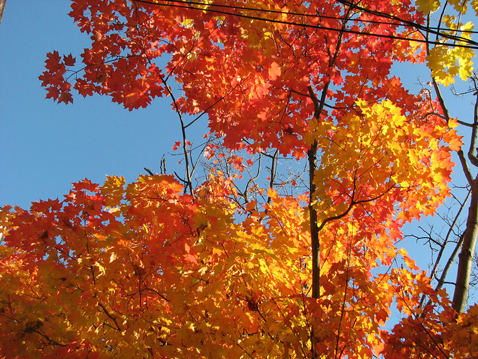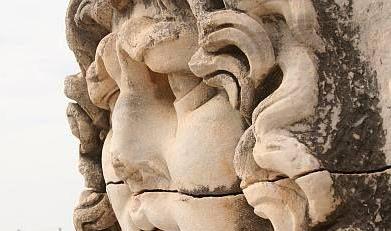on breaking habits and freeing arms
/Today's guest writer, Mrs. Spit, was amazed to find herself pregnant in June of 2007, and heartbroken in December, when her son Gabriel died.
Choosing to move a step forward in your grief is such a personal, such an individual thing. It comes on its own time line, with its own rules. When you chose to get out of the habit about blogging about, about talking of your grief, your dead child, its a hard thing to understand.
The story starts with a story teller - Stuart Mclean, host of CBC's Vinyl Cafe. I wrote to Stuart this past December, telling him that we would be at his Christmas Concert, and we weren't there two years ago because I was delivering a child that died. I didn't have any particular reason to write, I wasn't really writing to tell him I enjoyed his radio show, I wasn't really writing for anything, and yet, I still wrote.
He wrote me back the loveliest of emails. He talked a bit about perinatal death, but he talked more about the process of finding your spot in life again. He used a metaphor of a wood pile, they put wood in front of you, and eventually you get back to chopping and stacking wood.
For a long time, a terribly long time, I needed Gabe to stay with me. As I lost pregnancy after pregnancy, bleeding and bleeding, I needed Gabe. And if I did not have the warm living body of my son, I had his memory. As I sorted my way through the grief of his death, and then 4 more miscarriages, I needed to hold him close, for comfort, for peace and for hope.
I started a new job about the time I went to the Christmas Concert, and it was time to change my focus. To talk less about Gabe, to carry him in my heart, but give my arms a break. Some of this has been quite conscious - I pass up opportunities to talk about pregnancy, about childbirth, about perinatal loss. When people ask if I have kids, I answer quickly - "No". I am breaking habits. I blog less about Gabe as well, if only because I blog more about everything else. The now.
When I was in high school we turned a wooded area into a soccer field. We took the trees down the old fashioned way - with axes and buck saws. We chopped them down, and then we sawed them up. It took all of my junior year to chop those trees down, and all of my senior year to clear the brush.

Perinatal death is a forest, laid upon the ground. Trees that are no longer trees, but not yet useful wood. Ratty old lodge-pole pine, a bit of poplar, sticky spring sap still coming off. Torn up ground. Rents, when whole trees have been dragged away to chop. Underbrush and mud, with leaves ground in. Alberta wild roses, full of prickly thorns, winter-berry. The smell of decomposing green matter, cold fall days, freezing winter. Cold, bleeding hands, bruised shoulders, broken toes. Perinatal death and half chopped up forests are not places to linger. They are places of purpose, back-breaking, soul-wearing work.
Like everything, work ends. Four years after we started, grass in, the field level, bleachers and junior girls playing soccer, I stood on the sidelines. But for memory, I would not know field was forest. But for this story, you would not know.
Stuart wrote about the process of living, grieving, wanting, wishing. He made a point: there's wood in front of you. You give yourself over to it, testing the sore parts, not sure if you can trust your knees to carry. You start a bit slowly, then you are more able to carry on with the sore bits, and the truth is, it hurts less. One day, the work is done. Then, you find others, in their torn-down forests, and you tell them the dimensions of a cord of wood."Start there", you say. "That one is small. You can manage that."
Do not misunderstand, my classmates, we talk about that forest-field. Once in a while we get together and we reminisce. We share a secret, we know what you see in front of you was not always there. We know that memories fade. Oh, not the fact: the how, all those awful days or work. All that remains is field from forest andthat transformation is good and right to talk about. But only sometimes.
You understand the description I have given you, even if you have never, by the strength of your back, wrought field from forest. You who understand transformation, raw power, hefting, struggling and bleeding - you understand those dimensions that I gave you, you understand 50 cords of wood from forest.
I can talk about what was, what could have been - but most people see what is. My stories of Gabriel here and gone make no sense, people who have not built field from forest cannot reconcile heartbreak to the composed woman in front of them. Of the power of transformation, they know not.
Most of the time people, they say "Oh, look a soccer field."
Perhaps one day they will realize that soccer fields don't make themselves, perhaps one day you will need to come along and show them how to make one. Or not. Most people live in the ever present now. And truly, now is not such a terrible place to be. Sometimes you wish your now was different, always you wish it included just one more person. Somedays, when you are tired, when you particularly remember, you remember neither the wood or the soccer field, but that horrible place in between.
Most days, you just nod. "Yep", you say, "that's a soccer field".






